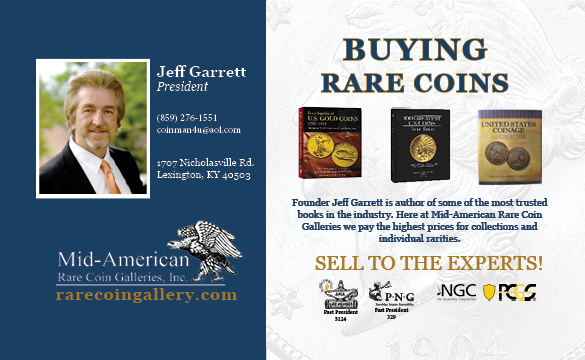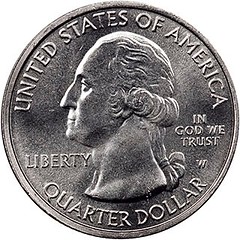
PREV ARTICLE
NEXT ARTICLE
FULL ISSUE
PREV FULL ISSUE
MORE ON THE MINT'S MANUFACTURED RARITIESVic Mason submitted these additional thoughts about the Mint's new circulating rarities. Thanks! -Editor CONCERNS ABOUT THE ETHICAL DISTRIBUTION OF THE HIGHEST-GRADE CIRCULATING RARITIES THAT ARE NOW BEING INTENTIONALLY PRODUCED BY THE UNITED STATES MINT
If they did save some for themselves, they do not realize – except for the coin collectors among them – that they are likely in possession of some of the "hottest" rare coins that have ever been produced (inadvertently) by the United States Mint. Judging by the extraordinary four-, five- and even six-figure auction prices achieved by modern-coin condition rarities in recent years, such innocently- saved pristine "W" quarters could, if properly handled, end up going for auction prices that make their owners' heads spin. That's because the manner of production and distribution of the 2019 "W" quarters was to put virtually all of them directly into circulation throughout the country and the territories. Those few carefully-handled coins that, as a matter of custom, go to the Smithsonian – two of each quarter design? – become extraordinary treasures, unbeknownst to the leaders of the United States Mint. That's why the Mint supervisory staff, for their own sakes, need the assistance of a public- private partnership (PPP) from the numismatic industry to provide the guidance that keeps everything in the production and distribution of these coins above-board and transparent. Leaders from the Mint and from the United States Department of the Treasury are unlikely to understand the significance of a term like "condition rarities," as it applies to these new deliberately-created circulating rare coins. We know that the Mint staffers have developed plenty of experience and expertise in recent decades, using the most modern high-tech equipment, to produce perfect coins and thus meet collector demand for specimens at the 69- and 70-grade levels. But they are unlikely to understand that it's not just the number that gives the coins their desirability to collectors. It's the combination of the rarity of the coins and the frenzy of today's collectors putting together "registry sets" – another concept foreign to the non-collector. The collecting community – probably unaware of that lack of sophistication among Treasury and Mint staff – could once again become cynical about the whole program, if they thought "insiders" were operating for their own advantage. So the Mint's leaders need the PPP to provide expert guidance in the setting of policy on the new circulating rarities – for example, those coins saved for notables and those inserted into cereal boxes or other packages of consumer commodities for the general public to search for. Those pristine specimens will predictably be at the very top of every collector's wish list. That is why I think the circulating rarities being sent to the Smithsonian should first be graded and encapsulated by third-party grading firms – so that no one "in the know" could slip lightly-circulated substitutes into that collection to replace perfect but uncertified specimens. These are just some thoughts I've mulled over recently, as policy and practice in these exciting new areas of coin collecting, grading, production and distribution evolve. To read the earlier E-Sylum article, see:
 Wayne Homren, Editor The Numismatic Bibliomania Society is a non-profit organization promoting numismatic literature. See our web site at coinbooks.org. To submit items for publication in The E-Sylum, write to the Editor at this address: whomren@gmail.com To subscribe go to: https://my.binhost.com/lists/listinfo/esylum All Rights Reserved. NBS Home Page Contact the NBS webmaster 
|
